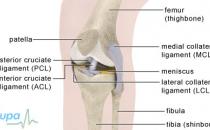Walking and health

It might sound too good to be true, but simply walking can help you reach the recommended target of at least 30 minutes of moderate exercise, five days a week. Regular walking protects you against a number of illnesses and can be an efficient way to get around from A to B. You can easily build walks into a busy lifestyle and you can walk pretty much anywhere, at any time.
This article looks at the benefits of walking and gives practical tips to get you moving.
Benefits of walking
Walking and your future health
Get going
Keep motivated
Action points
Benefits of walking
Some of the benefits of walking are listed below.
A great way to travel
Walking is a good means of transport because it’s:
- convenient – you can just get up and go when it suits you
- free – you don’t need to pay for parking or transport fares
- predictable – you know how fast you can walk so you’re in control of your journey times
- stress-free – if you can walk some or all of the way to work, you don’t need to worry about late buses and trains
- good for the environment – getting out of your car and onto your feet will reduce pollution and road congestion
- sociable – you can go with a friend or colleague
Boost your fitness
Brisk walking that raises your heart rate and makes you warm and slightly breathless is a great example of aerobic exercise. This helps you to get fitter and means your body gets better at using oxygen so you can be more active without getting tired.
Stay in shape
If you want to lose excess weight, you need to burn more calories than you eat. The average 60kg person walking briskly at about 6.4km per hour (4 miles per hour) for half an hour uses up around 150 calories. If you want to lose weight you will need to exercise more than the recommended target of 30 minutes a day.
Feel happier
Not only is walking good for your physical health, but as with all types of exercise it improves your mood, reduces stress and anxiety and builds self-esteem. So walking to work could help you start the day feeling calmer and happier.
Feel full of energy
You might worry that walking every day will leave you exhausted. Although you may feel slightly tired in the first week or two, people who exercise regularly generally feel they have more energy than inactive people.
Sleep well
Regular physical activity will mean you sleep better – you will fall asleep quicker and sleep for longer. An after-dinner stroll might help you wind down for bed.
Reduce joint pain and experience better back health
For your joints to work at their best, you need to use them regularly. Regular walking gives your knee joints a good work-out, increases your muscle strength and can help to keep your bones strong. Leading a generally active lifestyle, including walking, may help protect against osteoporosis.
Walking is an excellent choice of exercise if you have arthritis problems or osteoporosis (weak bones) because it doesn’t put a lot of impact on your joints. It can help to treat and reduce pain caused by osteoarthritis.
Not only can walking reduce joint pain, it can help prevent back pain and alleviate it if it’s already a problem for you.
Walking and your future health
As well as keeping you fit and in good shape, staying active will help you prevent a whole range of health problems in the future. Meeting recommended physical activity targets by walking reduces your risk of:
- high blood pressure
- high cholesterol
- coronary heart disease (which can lead to angina, heart attack or stroke)
- type 2 diabetes
- certain types of cancer, especially colon, breast and lung cancer
Get going
If you haven’t been active for a while, walking is one of the easiest ways to get started. Begin slowly and gradually build up how much walking you do. It’s important that you build walking into your daily routine so that it becomes a habit. Below are some ideas to help you get started.
- Walk to the shops instead of driving.
- Ask a friend to join you – it makes walking more fun and can keep you motivated.
- Go for a walk in your lunch break with a colleague.
- Walk up escalators and use stairs instead of the lift.
- Organise a walk for your whole family – walking is beneficial for everyone and will give you a chance to spend time together.
- Aim to walk 10,000 steps a day. Use a pedometer to count the number of steps you take.
Keep motivated
Once you have started walking regularly, there are a number of things you can do to keep going.
- Join a local walking group – you will make new friends and explore different areas.
- Explore the UK on foot – enjoy walking over hills, along the riverside or beach, or through a woodland.
- Orienteering – navigate on foot between points on a map – good if you want a challenge.
Action points
- Walk for 30 minutes on at least five or more days a week.
- If you haven’t been active for a while, try doing smaller amounts of activity during the day and build up to the 30-minute target.
- Try walking with friends or your family to keep you motivated.
- Remember that walking can be really enjoyable – head to your local park or explore somewhere you haven’t been before.
Further information
The British Heart Foundation.
www.bhf.org.uk
Sources
- Put your heart into walking. British Heart Foundation. 2010. www.bhf.org.uk
- At least five a week. Department of Health. www.dh.gov.uk, published 29 April 2004
- Why walk? Walking for health. www.whi.org.uk, accessed 22 June 2010
- Simon C, Everitt H, Kendrick T. Oxford handbook of general practice. 2nd ed. New York: Oxford University Press, 2007
















